זאָג מאַראַן
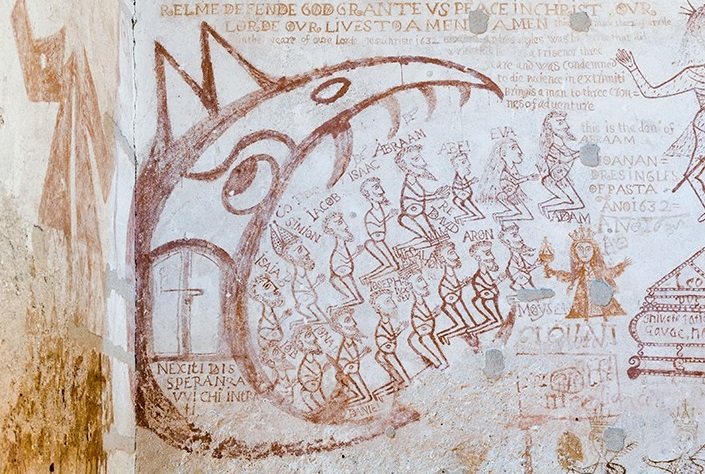
זאָג מאַראַן דו ברודער מײַנער[1]
(Continues)
(Continues)
Contributed by Riccardo Gullotta 2020/8/26 - 18:22
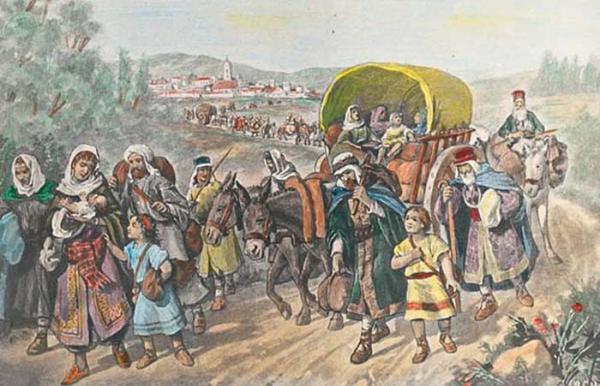
Traduzione italiana / איטאַליעניש איבערזעצונג / תרגום לאיטלקית / Italian translation / Traduction italienne / الترجمة الإيطالية / Italiankielinen käännös:
Riccardo Gullotta
Riccardo Gullotta
DIMMI MARRANO
(Continues)
(Continues)
Contributed by Riccardo Gullotta 2020/8/26 - 21:33
צום װינטער, אָדער אַ װינטער־ליד, אָדער הוליעט, הוליעט בײזע װינטן
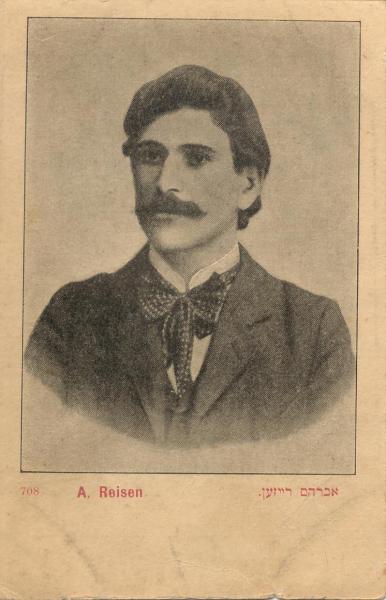
Tsum vinter, oder A vinter-lid oder Hulyet, hulyet, beyze vintn
[1900 ?]
Testo di Avrom Reyzen (Abraham Reisen)
Musica di Mikhl Gelbart
Lyrics: Avrom Reyzen (Abraham Reisen)
Music: Mikhl Gelbart
Sembra impossibile risalire esattamente all'anno di composizione del testo da parte di Avrom Reyzen (non lo specifica neppure il Freedman Catalogue), ma deve risalire sicuramente all'epoca zarista, e probabilmente al 1900 quando si ebbe un inverno durissimo che avrebbe dato origine alla canzone. Durissimo non soltanto climaticamente: in tutto l'impero zarista, erano tempi di pogrom continui, e non è certo un caso che la parola pogrom (погром, che si pronuncia propriamente pagròm) sia di origine russa: significa “devastazione”. Nell'impero zarista, i pogrom antiebraici cominciarono dopo l'attentato allo zar Alessandro II nel 1881, ma la loro origine, anche in altri paesi europei, è ben più antica.... (Continues)
[1900 ?]
Testo di Avrom Reyzen (Abraham Reisen)
Musica di Mikhl Gelbart
Lyrics: Avrom Reyzen (Abraham Reisen)
Music: Mikhl Gelbart
Sembra impossibile risalire esattamente all'anno di composizione del testo da parte di Avrom Reyzen (non lo specifica neppure il Freedman Catalogue), ma deve risalire sicuramente all'epoca zarista, e probabilmente al 1900 quando si ebbe un inverno durissimo che avrebbe dato origine alla canzone. Durissimo non soltanto climaticamente: in tutto l'impero zarista, erano tempi di pogrom continui, e non è certo un caso che la parola pogrom (погром, che si pronuncia propriamente pagròm) sia di origine russa: significa “devastazione”. Nell'impero zarista, i pogrom antiebraici cominciarono dopo l'attentato allo zar Alessandro II nel 1881, ma la loro origine, anche in altri paesi europei, è ben più antica.... (Continues)
הוליעט, הוליעט בייזע ווינטן,
(Continues)
(Continues)
Contributed by Alessandro + CCG/AWS Staff 2009/1/22 - 09:22
La trascrizione in caratteri latini, da Yidlid:
TSUM VINTER, oderA VINTER-LID,
(Continues)
(Continues)
Contributed by Alessandro 2009/1/22 - 09:25
Nota. La versione ha "intenti artistici", ma è pressoché una riscrittura, una Nachdichtung che corrisponde solo in parte al testo originale. Dalla versione manca la terza strofa dell'originale yiddish. [RV]
WAILING, WAILING WINDS OF EVIL
(Continues)
(Continues)
Contributed by CCG/AWS Staff 2009/1/22 - 18:23
Altra pagina radicalmente rifatta. L'attribuzione è stata riportata al suo autore, Avrom Reyzen (Abraham Reisen), già peraltro presente in questo sito; a tale riguardo, invito tutti coloro che in futuro segnaleranno canzoni in yiddish a non attribuirle al singolo o al gruppo la cui eventuale interpretazione è stata reperita (seguendo questo criterio, la quasi interezza delle canzoni in yiddish potrebbero essere attribuite ai Klezmatics o a Moni Ovadia...), ma all'autore effettivo. Come accade purtroppo spesso, i testi in trascrizione sono pesantemente errati.
Riccardo Venturi 2013/4/29 - 00:34

13-3-2017 20:31
Due parole del traduttore. Si tratta di una versione quasi letterale del testo originale, così come ristabilito nella versione a quattro strofe.
Due parole del traduttore. Si tratta di una versione quasi letterale del testo originale, così come ristabilito nella versione a quattro strofe.
D'INVERNO, o CANZONE D'INVERNO,
(Continues)
(Continues)
Dalla pagina si può anche ascoltare la versione ebraica cantata. [RV]
מילים: אברהם רייזין
(Continues)
(Continues)
Contributed by Riccardo Venturi 2017/3/13 - 20:51
Nota. Proviene dalle note a corredo del precedente video YouTube, con l'esecuzione coristica del canto nella sinagoga di Grodno, in Bielorussia. "Participants on the 2014 Helix Project take advantage of wonderful acoustics in the 17th-century Great Synagogue of Grodno, Belarus to sing "Beyze Vintn," (Evil Winds), words by Litvak poet Avrom Reyzen, music by Mikhl Gelbart. Recorded July 2014." Il testo è stato riarrangiato graficamente.
[HOWL, HOWL, RAGING WINDS]
(Continues)
(Continues)
Contributed by Riccardo Venturi 2017/3/13 - 22:18
Nota. Riprodotta integralmente, ma con la correzione di un terribile errore grammaticale che era sfuggito (probabilmente un refuso).
HAVE FUN, EVIL WINDS
(Continues)
(Continues)
Contributed by Riccardo Venturi 2017/3/13 - 22:46
מלחמה
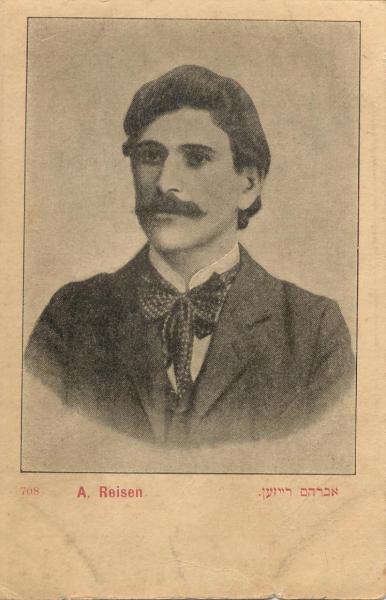
Milkhome
[1916]
Testo di Avrohom Reyzen
Musica di Michael Gordon [1823-1890]
Lyrics by Avrohom Reyzen
Music by Michael Gordon
[1916]
Testo di Avrohom Reyzen
Musica di Michael Gordon [1823-1890]
Lyrics by Avrohom Reyzen
Music by Michael Gordon
אוי מאַמע כ’וויל אַ ביזל מילך.
(Continues)
(Continues)
Contributed by Riccardo Venturi 2005/6/19 - 02:35
Trascrizione in caratteri latini
Romanized version
Romanized version
MILKHOME
(Continues)
(Continues)
Contributed by Riccardo Venturi 2005/6/19 - 02:36
Just browsing the Yiddish songs.
This one also caught my attention (see comment about "Shtil di Nakht") - also full of spelling mistakes in the original.
1) Even the title is wrong.
It says "מלכמה"
It should be "מלחמה"
2) in the 2nd verse, if one transliterates correctly:
Nito mayn kind, - a vaser
hot fartrunken alte miln.
This means:
There isn't any, my child, - a "water" (i.e. flood)
has flooded/swamped/inundated all the Mills.
and so, the Italian would be something like:
Non c’è, bambino mio, - acqua
ha inondato tutti i mulini.
3) in the 3rd verse, the water carried them down (aropgetrogn) - I assume the poet meant carried them away...
unless it's a typo and should be "opgetrogn" which is more logical - "carried them away" (as in "swept them away") - and retains the rhyme with "shlogn".
In either case, the Italian translation for that line is wrong. I'll leave it to... (Continues)
This one also caught my attention (see comment about "Shtil di Nakht") - also full of spelling mistakes in the original.
1) Even the title is wrong.
It says "מלכמה"
It should be "מלחמה"
2) in the 2nd verse, if one transliterates correctly:
Nito mayn kind, - a vaser
hot fartrunken alte miln.
This means:
There isn't any, my child, - a "water" (i.e. flood)
has flooded/swamped/inundated all the Mills.
and so, the Italian would be something like:
Non c’è, bambino mio, - acqua
ha inondato tutti i mulini.
3) in the 3rd verse, the water carried them down (aropgetrogn) - I assume the poet meant carried them away...
unless it's a typo and should be "opgetrogn" which is more logical - "carried them away" (as in "swept them away") - and retains the rhyme with "shlogn".
In either case, the Italian translation for that line is wrong. I'll leave it to... (Continues)
Leybl Botwinik 2011/10/10 - 12:09
Un'altra pagina rifatta completamente, accogliendo (in grosso ritardo, purtroppo) le giuste osservazioni di Leybl Botwinik del 10 ottobre 2011 (un periodo in cui purtroppo non potevo leggerle a dovere per cause di salute). Il testo in yiddish è stato ricomposto secondo le rigorose regole ortografiche YIVO, e la trascrizione corretta così come le traduzioni (sia quella tedesca che quella italiana). Il nome dell'autore è stato riportato anche nella forma tedesca standard con il quale è spesso indicato.
Riccardo Venturi 2013/4/29 - 00:06
×
![]()

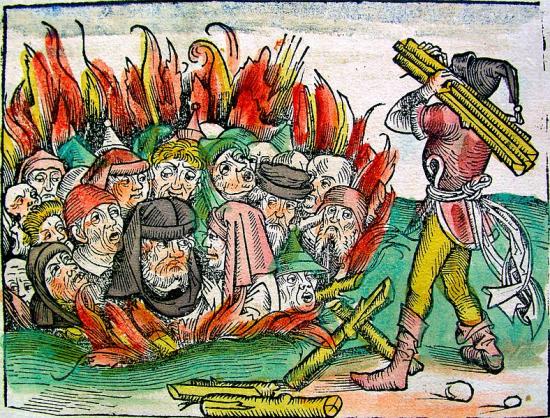
[ 1963 ]
פּאָעזיע / Poesia / A Poem by / Poésie/ شعر / Runo:
אברהם רייזן [Avrom Reyzen]
מוזיק/ Musica / Music / Musique / موسيقى / Sävel:
Samuel Bugatch
פּערפאָרמער/ Interpreti / Performed by / Interprétée par / مترجمين / Laulavat:
Vocolot
אלבאם / Album:
Heart Beat
יִרְמְיָהוּ
וַֽאֲנִ֕י כְּכֶ֥בֶשׂ אַלּ֖וּף יוּבַ֣ל לִטְבּ֑וֹחַ וְלֹֽא־יָדַ֜עְתִּי כִּֽי־עָלַ֣י |
חָֽשְׁב֣וּ מַֽחֲשָׁב֗וֹת נַשְׁחִ֨יתָה עֵ֚ץ בְּלַחְמוֹ֙ וְנִכְרְתֶ֙נּוּ֙ מֵאֶ֣רֶץ
חַיִּ֔ים וּשְׁמ֖וֹ לֹֽא־יִזָּכֵ֥ר עֽוֹד:
Geremia 11,19
Ero come un agnello mansueto che viene portato al macello,
non sapevo che essi tramavano contro di me dicendo:
"Abbattiamo l'albero nel suo rigoglio,
strappiamolo dalla terra dei viventi; che il suo nome non sia più ricordato”.
I Marrani
Marranos nella Spagna medievale furono chiamati in senso spregiativo gli ebrei convertiti al cristianesimo e la loro discendenza.... (Continues)